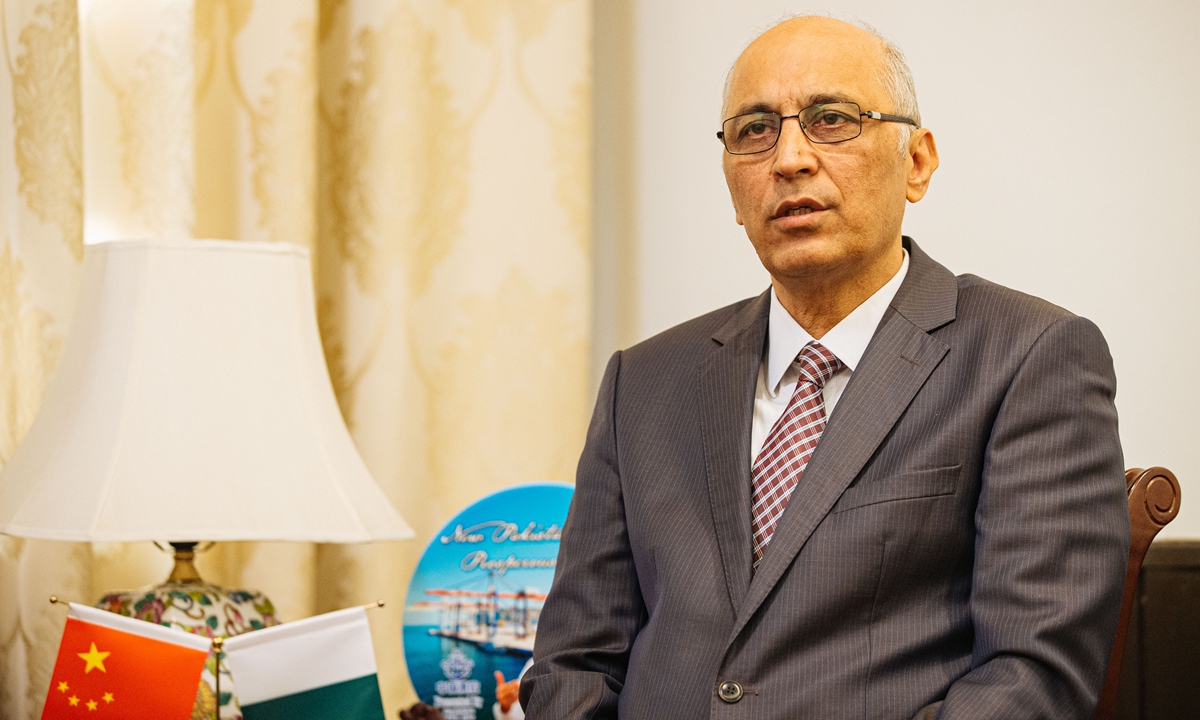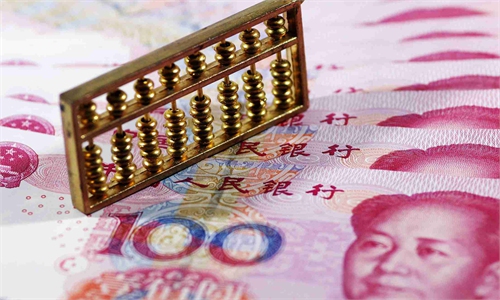IN-DEPTH / DIPLOMATIC CHANNEL
Payment of Russian crude oil in yuan in line with Pakistan’s economic partnership with China, based on mutual trust: ambassador

Pakistani Ambassador to China Moin ul Haque Photo: Courtesy of the Embassy of Pakistan in Beijing
The transaction of Pakistan’s first government-to-government import of discounted Russian crude oil in Chinese yuan is in line with Pakistan’s practical and broad-based economic partnership with China and is based on our strong mutual trust and win-win cooperation, Pakistani Ambassador to China Moin ul Haque told the Global Times in an exclusive interview on Monday.
Ambassador Haque told the Global Times that with growing economic ties and the new projects being launched under the China-Pakistan Economic Corridor (CPEC), China and Pakistan have agreed to the use of the Chinese yuan and Pakistani rupees for financial transactions.
The first cargo of discounted Russian crude oil arrived in Karachi on June 11. In an interview with Reuters, Pakistan’s Petroleum Minister Musadik Malik revealed that the “payment (was) made in RMB.”
Analysts pointed out that this transaction of oil in Chinese yuan marks a significant shift away from the traditional use of the US dollar for international transactions. The move is also viewed by observers as a way for Pakistan to reduce its reliance on the US dollar and strengthen its ties with China and Russia. It is also expected to boost trade among the three countries.
“The first ever shipment of Russian oil recently arrived in Pakistan after undergoing a prudent process of procurement. This transaction is aimed to bring benefits to the people of Pakistan amid rising fuel prices all over the world, as well as Pakistan’s difficult economic situation, energy shortages, and dependence on expensive imported petroleum,” Haque told the Global Times.
Pakistan’s Prime Minister Shehbaz Sharif said on Twitter on June 11 when the crude oil cargo arrived in the country that “today is a transformative day. We are moving one step at a time toward prosperity, economic growth, and energy security and affordability.”
“This is the first ever [consignment of] Russian oil cargo to Pakistan and the beginning of a new relationship between Pakistan and the Russian Federation. I commend all those who remained part of this national endeavor and contributed to translating the promise of a Russian oil import into reality,” he said.
Pakistan’s first government-to-government deal with Russia consisted of 100,000-ton crude oil consignment, according to media reports.
Ambassador Haque noted to the Global Times that this transaction in Chinese yuan is based on win-win cooperation and Pakistan’s broad-based economic partnership with China.
According to the Pakistani diplomat, China is Pakistan’s largest trading partner and one of the biggest sources of Foreign Direct Investment (FDI) inflow into Pakistan. The economic and financial ties between China and Pakistan have been further fortified since the inception of CPEC in 2013 which became the mainstay of the bilateral economic relationship. Pakistan is also a priority partner for developmental cooperation under the Global Development Initiative (GDI).
“China and Pakistan have a currency swap agreement to facilitate trade in local currencies. As bilateral trade between the two countries grows and new projects are launched under the CPEC, the two countries have agreed to the use of yuan and Pakistani rupees for financial transactions,” he said.
In a previous interview with the Global Times, Ambassador Haque said that CPEC is a flagship project and a major corridor under the Belt and Road Initiative (BRI). Fully aligned with the national development agenda of Pakistan, CPEC has been the key to the countries' socio-economic development.
In its first phase, CPEC aimed to develop major transport infrastructure and address the country’s essential energy needs. In the next phase, CPEC will focus more on socio-economic development, agricultural cooperation, and industrialization.
The use of the Chinese yuan in international transactions has increased in recent years. Pakistan is among a list of countries that now settle trade with China in Chinese yuan. Iraq’s Central Bank announced in February that it plans to use Chinese yuan to improve its access to foreign currency. In March, the China National Offshore Oil Corp and France’s TotalEnergies completed China’s first yuan-settled liquefied natural gas trade using cross-border yuan settlement, according to the Xinhua News Agency.
Meanwhile, a de-dollarization trend has been gaining momentum in the world in recent years as more countries seek to reduce their dependence on the US dollar and diversify their foreign exchange reserves.

